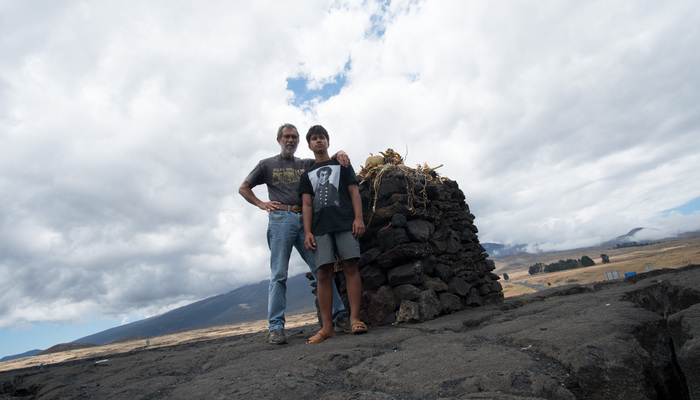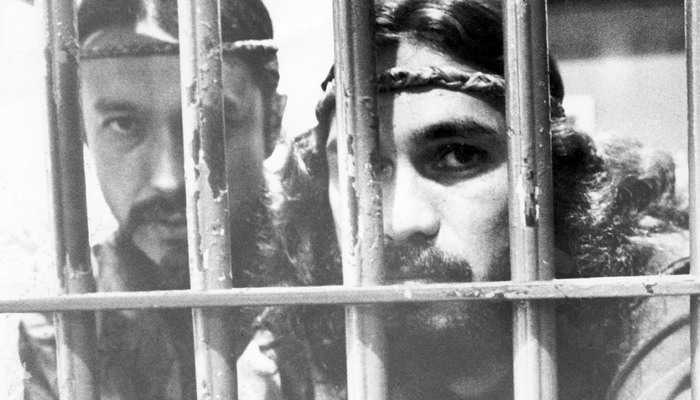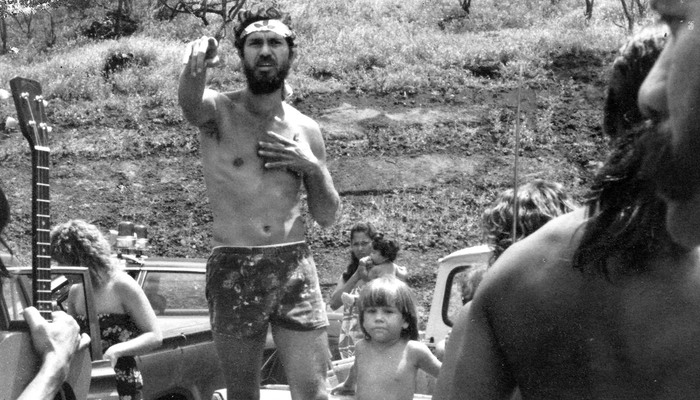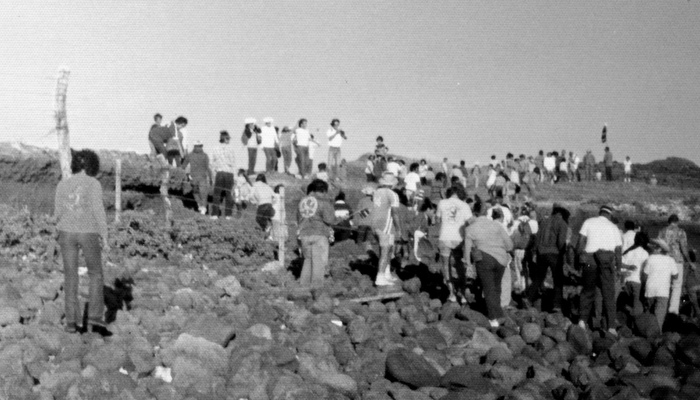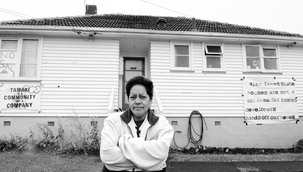
Aloha ʻĀina: The Awakening of Walter Ritte
For over 40 years, radical island activist Walter Ritte has brought controversy and courage to the front lines of the Native Hawaiian Movement.
- Filmmaker(s)
- Joan Lander
- Matt Yamashita
- John Antonelli
- Category
- Full-Length Film
- Subject Matter
- Biography, Civil Rights & Social Justice, Politics & Government
- Region
- Polynesia
- Length
- 60 Minutes
- Year
- 2017
- Website
- https://www.quazifilms.com/awakening-ritte
In 1975, Walter Ritte found himself struggling to support his wife and children on the rural island of Molokai. Traditional hunting grounds were restricted by foreign landowners. Ritte chose to break the law to put food on his family’s table. This rebellious step would launch him into the forefront of an awakening Native Hawaiian movement.
Through the years, Ritte has risked his life and reputation leading radical protests. His controversial stands have gained him both passionate supporters and condemning critics. This documentary is an intimate portrait of Ritte's turbulent birth as an activist.
Through an exploration of personal reflections, key places and events, and the perspective of his closest supporters and fiercest critics, this documentary gives intimate insight into the evolution of a charismatic, yet often polarizing revolutionary and his controversial role in an indigenous uprising that continues today.
Matt Yamashita - Co-Producer & Director
Matt Yamashita was born and raised on the Hawaiian island of Molokaʻi. He is of Japanese, Filipino, and Caucasian ancestry. After receiving a BFA in Film Production from Chapman University, Matt returned to Molokaʻi to become the island’s first professional filmmaker. He has been working in the Hawaiʻi film industry since 2001. Matt has unique expertise working within Hawaiʻi-based communities, cultures, and environments and has dedicated the focus of his work to telling Hawaiʻi’s stories through a local lens. Matt has held key roles in productions that have received statewide and national broadcast, including PIC-funded Nā Loea: The Masters II (from Pacific Heartbeat Season 4), and The Roots of ʻUlu. He is well-known for his ability to deliver quality products while working with very limited resources and small production teams.
John Antonelli - Co-Producer
John Antonelli has been producing award-winning programs for theatrical release, public television, premium cable and broadcast for over 30 years. His titles include Sam Cooke: Crossing Over, Jack Kerouac: King of the Beats, Unfair Game: The Politics of Poaching, Sea Change, and Angle of Inspiration. For the past twelve years, Antonelli has been producing The New Environmentalists. The half hour series narrated by Robert Redford has been broadcast on PBS and on The Sundance Channel’s environmental programming thread The Green. These environmental documentaries have also screened at film festivals worldwide including Barcelona, New Zealand, Palermo, Lisbon, Seoul, Prague, New Delhi, Telluride, Hawaiʻi, Vermont, and at the United Nations Film Festival at Stanford Univeresity. Sam Cooke: Crossing Over premiered on PBS' American Masters, which garnered an Emmy nomination for Outstanding Nonfiction Series. Jack Kerouac: King of the Beats premiered at the Sundance Film Festival and is currently streaming on Netflix and iTunes.
Joan Lander - Associate Producer
Nā Maka o ka ‘Āina ("The Eyes of the Land") is an independent video production team that focuses on the land and the people of Hawai'i and the Pacific. Documenting traditional and contemporary Hawaiian culture, politics, history, language, and the environment, Na Maka o ka ‘Aina is committed to giving voice to the current movement toward recognition of Hawaiian independence.
Director's Statement
Walter Ritte played a unique role in some of the most important events in recent Hawaiian history. His fiery bravado and cunning tactics are often associated with controversy. The public holds widely varying opinions of Walter. Many call him a hero while others consider him a divisive troublemaker.
In taking on this film, I wanted to answer the question, “who is Walter Ritte, really?” Producing this documentary has been a fascinating journey of unraveling the complexities of a rare individual. It has also provided an intimate look into the gritty realities of the birth of the Native Hawaiian movement.
With so many twists and turns, this is not an easy story to tell. But it needs to be told. Through bold activism, Walter and his generation rose up against a system that nearly erased Native Hawaiians. It took courage and sacrifice. In today’s world, this story is ever relevant. The path of activism is not an easy one but remains an important one.

